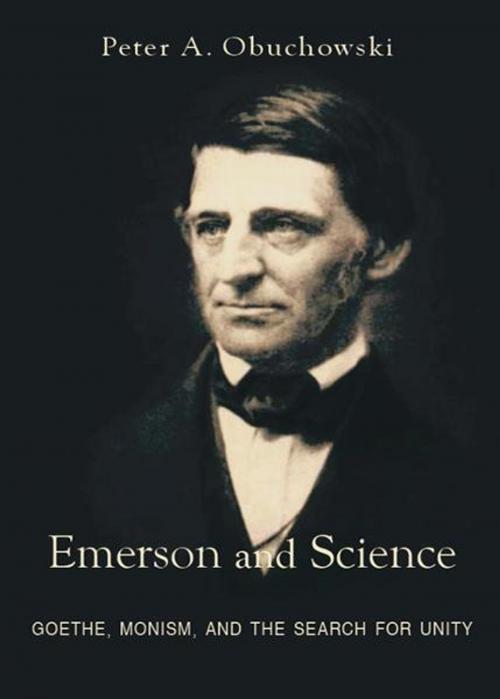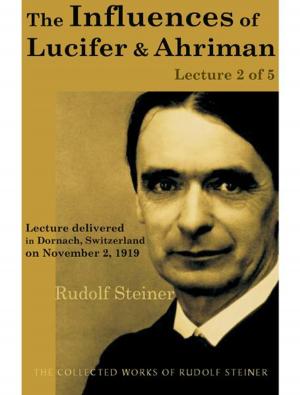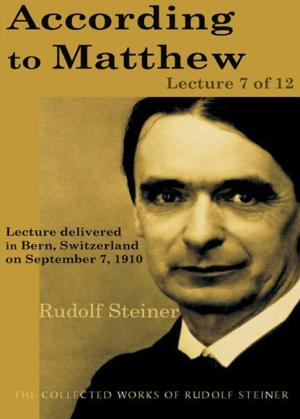| Author: | Peter Obuchowski | ISBN: | 9781584204831 |
| Publisher: | SteinerBooks | Publication: | September 1, 2005 |
| Imprint: | Lindisfarne Books | Language: | English |
| Author: | Peter Obuchowski |
| ISBN: | 9781584204831 |
| Publisher: | SteinerBooks |
| Publication: | September 1, 2005 |
| Imprint: | Lindisfarne Books |
| Language: | English |
Ralph Waldo Emerson maintained a lifelong interest in science. His journals, from the earliest to the last, document this interestan interest reflected in his lectures, essays, letters, and poems. Emerging from Emersons statements on science is a coherent attitude that can be defined as his scientific thinking. The purpose of Emerson and Science is to analyze this thinking and to indicate the relationship it bears to his total thought. An analysis of Emersons scientific thinking reveals that science, especially Goethean science, affords the means to explore and present what the book elaborates as Emersons monistic worldview. The pervasive influence of Goethes science on the epistemological bases underlying that view is presented at length. In addition to illuminating Emersons epistemological position, the context of science divulges how Emersons interest in science kept him from the extremes of Swedenborgs mysticism and from falling preyunlike many of his contemporariesto the pseudo-sciences of the day, including phrenology, mesmerism, palmistry, astrology, and so forth. Emersons interest in science also played an important role in his rejection of conventional religion and helped qualify his idealism, making him sympathetic to the claims of materialism. His focus on science kept him from accepting either of the main streams of the scientific thought of his age and led him to what the book defines as Emersons scientific mysticism, or spiritual science. Peter Obuchowski, a professor emeritus of English language and literature, shows how the context of Emersons approach to science provides a new focus for considering a number of the key issues that have become the hallmarks of Emersonian criticismissues such as Emersons optimism in relation both to his spiritually oriented worldview and to his faith in scientific progress, as well as his attitude to evil and his so-called philosophical naïveté.
Ralph Waldo Emerson maintained a lifelong interest in science. His journals, from the earliest to the last, document this interestan interest reflected in his lectures, essays, letters, and poems. Emerging from Emersons statements on science is a coherent attitude that can be defined as his scientific thinking. The purpose of Emerson and Science is to analyze this thinking and to indicate the relationship it bears to his total thought. An analysis of Emersons scientific thinking reveals that science, especially Goethean science, affords the means to explore and present what the book elaborates as Emersons monistic worldview. The pervasive influence of Goethes science on the epistemological bases underlying that view is presented at length. In addition to illuminating Emersons epistemological position, the context of science divulges how Emersons interest in science kept him from the extremes of Swedenborgs mysticism and from falling preyunlike many of his contemporariesto the pseudo-sciences of the day, including phrenology, mesmerism, palmistry, astrology, and so forth. Emersons interest in science also played an important role in his rejection of conventional religion and helped qualify his idealism, making him sympathetic to the claims of materialism. His focus on science kept him from accepting either of the main streams of the scientific thought of his age and led him to what the book defines as Emersons scientific mysticism, or spiritual science. Peter Obuchowski, a professor emeritus of English language and literature, shows how the context of Emersons approach to science provides a new focus for considering a number of the key issues that have become the hallmarks of Emersonian criticismissues such as Emersons optimism in relation both to his spiritually oriented worldview and to his faith in scientific progress, as well as his attitude to evil and his so-called philosophical naïveté.















